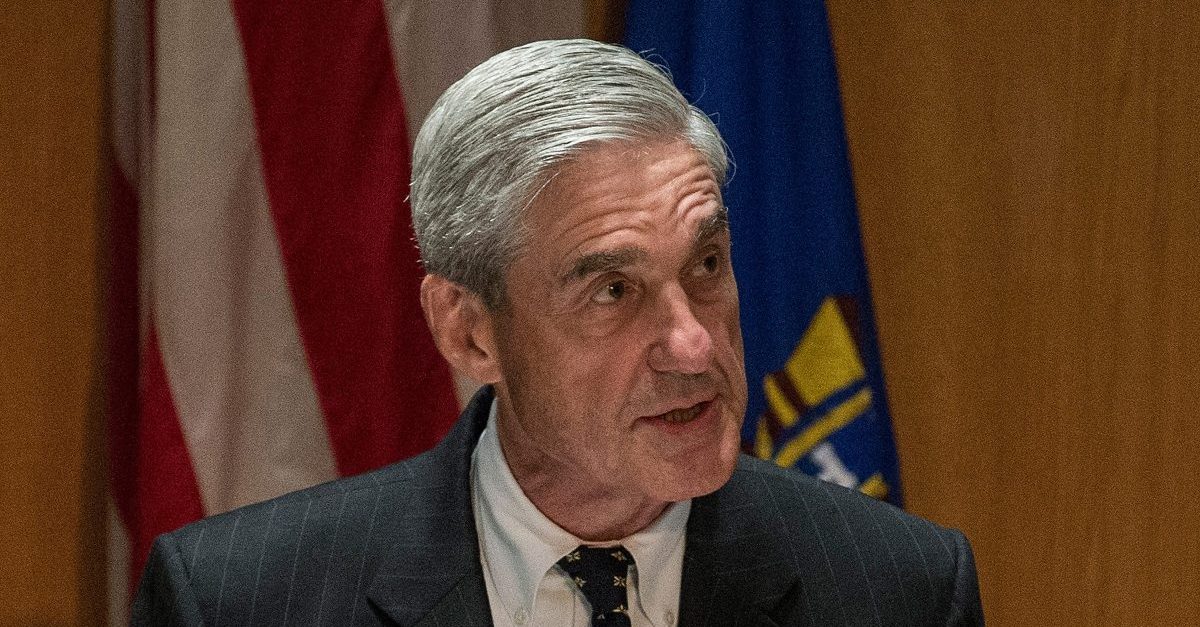
Alleged Russian troll farm Concord Management, often a colorful critic of all things Robert Mueller, has once again filed a chippy response in the case brought against them by the Special Counsel’s Office. The attorneys for the company accused of facilitating online trolling to influence the 2016 election characterized what the special counsel is doing as a “first-of-its-kind prosecution of a make-believe crime.”
Concord Management has of late railed against the special counsel for not providing discovery of information deemed “sensitive,” but not classified. Basically, what their argument boils down to is that it is impossible to mount a defense if the defendant has no access to discovery, i.e. the evidence. Attorneys for the defense went after Mueller again on Thursday in no uncertain terms in the very first line of their introduction.
“In this first-of-its-kind prosecution of a make-believe crime, the Office of Special Counsel maintains that it can unilaterally—and for secret reasons disclosed only to the Court— categorize millions of pages of non-classified documents as ‘sensitive,’ and prohibit defense counsel from sharing this information with Defendant Concord for purposes of preparing for trial,” they said. “This, apparently only because the Defendant and its officers and employees are Russian as opposed to American.”
From here, the lawyers quoted a “maxim” from the 1939 book The Cruel Way, saying, “Happy the short-sighted who see no further than what they can touch.” Essentially, they accused Mueller of being myopic. Then they said there is no “Russian Exception” to discovery.
“The short-term political value of a conviction far outweighs a reversal by a higher court years from now. This tactic, though rare, is not new. Here, the Special Counsel ignores the obvious fact that ‘any consultation with counsel is rendered meaningless unless the defendants and their attorneys have an opportunity to review the evidence,'” they argued. “Discovery is a fundamental right accorded to all defendants in all criminal cases. There is no ‘Russian Exception’ to this right.”
Concord Management slammed the entry of a “protective order” when it comes to more that 3 million “sensitive documents,” saying that it is “not the burden of a defendant to convince the court it is entitled to view discovery, rather it is the burden of the Special Counsel.” They argue that Mueller hasn’t bothered to explain why “non-classified material” should be kept from the defense.
They went so far as to say that they have never seen anything like this before and that “any attempt to persist in this novel and never-before-utilized method of prosecution would be fatal.”
“Undersigned counsel has been unable to identify a single reported case where a corporate defendant was prohibited from viewing discovery, or where a Court or the prosecutor inserted themselves into the decision about which corporate representatives could view discovery,” they said. “There is simply no good faith showing available to the Special Counsel, whether made in public or again in secret to the Court, that would result in any outcome other than the absolute inability of defense counsel to prepare for trial.”
They contend that if the court allows this prosecution to proceed down the current path, that would amount to the court asking the defense to trial “without any ability to discuss the evidence with the client who is to be put on trial.”
“This has never happened before in reported case law because the notion is too ludicrous to contemplate,” they said. “The only cases that undersigned counsel has been able to find where a defendant was prohibited from viewing non-classified discovery were those involving specific threats to the safety of witnesses/informants, or factually dissimilar cases where the discovery involved the object of the crime, i.e. child pornography.”
Concord’s counsel argues that Mueller has been given carte blanche to designate in “blanket” fashion millions of documents, “none of which on its face implicates any national security or law enforcement secrets—imposing significant burden on Concord—without consequence.”
It is worth noting that Concord previously argued in a motion to dismiss that Mueller has “created” a “make-believe crime.” That motion to dismiss was denied.
Law&Crime reached out to the Special Counsel’s Office for comment, but the SCO declined to comment.
Concord Management blasts R… by on Scribd
[Image via Andrew Burton/Getty Images]